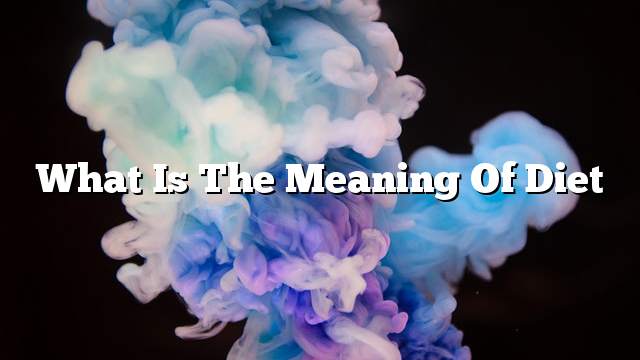Have you ever checked your food, visited a nutritionist or a doctor to determine the right food for you? Are you a gym or physical fitness club? If you are one of these categories or you are an observer of your weight, you should have heard the word diet once At least one.
But what is the diet?
The diet is defined as the proper diet that the individual needs to get all the nutrients from different groups in quantities that suit his personal and physical needs.
But what are the food groups?
The nutritionists divided the food into seven groups that meet each group’s body needs for specific elements:
1. Carbohydrates: It is the group responsible for giving the body the basic material to build energy in the body.
The main foods in this group are bread, rice and pasta. The choice of whole grain products – from which bran shells are still considered – is the optimal health option.
The most appropriate amount of carbohydrates is to make up one-third of the food eaten by the individual.
2. Fruits and vegetables: This group meets the body’s needs of vitamins, minerals and fibers that strengthen the immunity and help the body to produce amino acids and hormones that control the biological processes in the body and is reflected in the benefit of tissue health and youth.
The most suitable portion of this group is five meals – grains – of fruits and vegetables whether fresh, dried or frozen – try to avoid canned food. .
3. Proteins: It is the food group responsible for the growth of muscle tissue in humans.
And divided into two sources:
1. Plant proteins: They are the proteins found in plants such as legumes (lentils, chickpeas and beans).
2. Animal proteins: And are the proteins found in meat such as red meat and white.
4. Milk products: It is the group that includes milk and all derived derivatives such as milk, cheese, cream, butter and others.
The importance of this group contains calcium, which contributes to the construction of bone and is the mainstay of the body and contains a number of vitamins, proteins and fats from what makes it a full meal.
5. Fat: The food group contributes to some extent in the production of energy and is the most dangerous food groups in the event of increased damage to the heart and arteries, which is the most important and most influential group on weight gain.
This group is found in vegetable oils, ghee, butter and chocolates.
Fat is divided into two types:
1. Saturated fat: The complex fats are difficult to digest on the body, where excess amounts accumulate in the arteries and cause clots and diseases. It is found in obesity, cream and butter.
2. Unsaturated fats: And are beneficial fats to the body is not affected by the body increase increases the immune system and support the nervous system.
It is found in vegetable oils such as olive oil and fish oils.
6. Sugars:
This group has an attractive taste that attracts many people especially children.
This group consists of sugar whether it comes from sugarcane or beet.
A lot of this group in children is one of the reasons for their excessive activity and it has negative effects on the teeth if not taken care of clean.
In adults, sugars often cause a sudden activity that quickly disappears and causes great exhaustion to them once they have lost blood.
7. Water: It is one of the most important groups where water is about 70% of the human body and is the medium to transfer food to the cells and helps to maintain the flexibility of the body and water is important for young people, maintaining the freshness of the skin.
